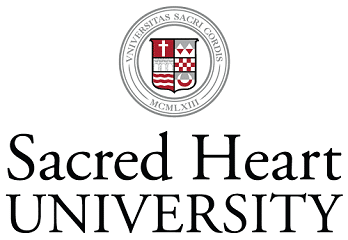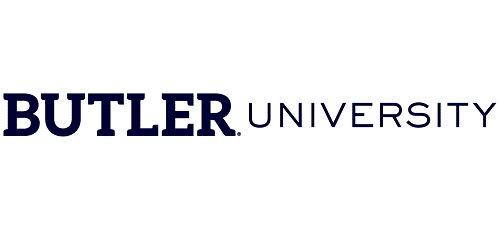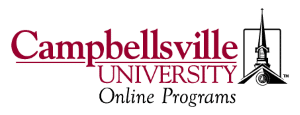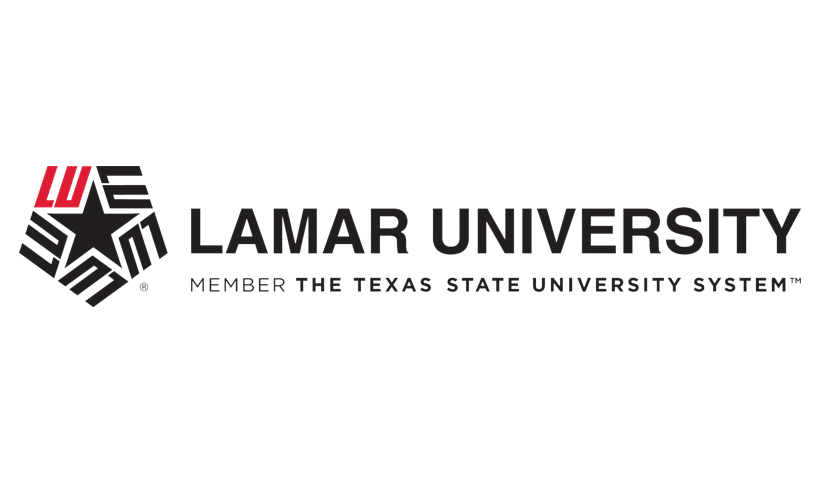Educational counseling degrees can lead you into careers that spotlight the importance of well-rounded educational, personal, and developmental support to children in the school setting.
Educational training for this type of career path can be pursued most frequently at the master’s level, since this degree program can lead to licensure after the completion of a supervised internship experience. Undergraduate degree programs focusing on mental health, education, or counseling can be enrolled in as a means for preparing for later education in this field.
 Walden University : MS in School Counseling (CACREP Accredited)
Walden University : MS in School Counseling (CACREP Accredited) Walden University : PhD in Counselor Education and Supervision, General (HLC Accredited)
Walden University : PhD in Counselor Education and Supervision, General (HLC Accredited) Walden University : PhD in Counselor Education and Supervision, School Counseling (HLC Accredited)
Walden University : PhD in Counselor Education and Supervision, School Counseling (HLC Accredited) Grand Canyon University : Master of Education in School Counseling (CACREP Accredited)
Grand Canyon University : Master of Education in School Counseling (CACREP Accredited) Liberty University : MED: School Counseling (Online with required intensives)
Liberty University : MED: School Counseling (Online with required intensives) University of Denver : Master of Arts in School Counseling (CACREP Accredited)
University of Denver : Master of Arts in School Counseling (CACREP Accredited) The Chicago School : Ph.D. in Counselor Education and Supervision (Online Programs.)
The Chicago School : Ph.D. in Counselor Education and Supervision (Online Programs.) Colorado Christian University : School Counseling, M.A. (100% online, or hybrid format. )
Colorado Christian University : School Counseling, M.A. (100% online, or hybrid format. ) Sacred Heart University : Master of Arts in School Counseling (Online program, NECHE accredited)
Sacred Heart University : Master of Arts in School Counseling (Online program, NECHE accredited)The field of educational counseling can be an integral part of general education services for children in private and public schools. If you know that this field is one for you, there are paths that you can take to help you get into this career in the quickest timeframes available.
There are colleges all over the U.S. that are equipped with accredited degree programs and reliable instructors to help guide you in the online setting.
If you are interested in providing support to students in a school setting, you can choose to enroll in educational counseling degrees online. Online programs in this field can teach you more about counseling techniques, education programs, relationship counseling, and more through convenience and flexible learning formats.
Our team of educational experts has reviewed the educational components associated with this career field and provided you with more information to help you along the way. Read more in the next sections to learn more.
Consider a Featured Online Counseling Program
| School and Program Information | Online Program? Entry Requirements | Course Information | |
|---|---|---|---|
|
Walden University
MS in School Counseling
 CACREP Accredited CACREP Accredited |
✔ Online
GRE scores not required
|
Empower students with the CACREP-accredited MS in School Counseling program at Walden. Build a solid foundation in school counseling theories, approaches, and best practices and gain hands-on experience.
|
Learn More |
|
Walden University
PhD in Counselor Education and Supervision, General
HLC Accredited
|
✔ Online
|
If you're looking for a clear path to teaching in CACREP-accredited counseling degree programs, Walden's PhD in Counselor Education and Supervision program can help you take the next step.
|
Learn More |
|
Walden University
PhD in Counselor Education and Supervision, School Counseling
HLC Accredited
|
✔ Online
|
Expand your influence with Walden's PhD in Counselor Education and Supervision. Specialize in School Counseling to support students and families through systems-based, research-informed practice.
|
Learn More |
|
Grand Canyon University
Master of Education in School Counseling
 CACREP Accredited CACREP Accredited |
✔ Online
|
At GCU, school-counselors-in-training candidates develop into more than school counselors, they grow into compassionate, servant leaders with strong ethics and morals to positively make a greater difference in communities and the lives of children.
|
Learn More |
|
Liberty University
MED: School Counseling
 CACREP Accredited CACREP Accredited |
✔ Online
Online with required intensives
|
Liberty University’s CACREP-accredited Master of Education (M.Ed.) in School Counseling can help equip you to work as a school counselor in Christian, public, and private schools. Online and on campus. Training Champions for Christ since 1971.
|
Learn More |
|
University of Denver
Master of Arts in School Counseling
 CACREP Accredited CACREP Accredited |
✔ Online
No GRE Required; Minimum GPA 2.5 Required
|
With no GRE required, earn your CACREP-accredited Master's in School Counseling online in as few as 24 months from the University of Denver.
|
Learn More |
|
The Chicago School
Ph.D. in Counselor Education and Supervision
|
✔ Online
Master's Degree Required.
|
Prepares graduates to act as educators and leaders in the field of counseling.
|
Learn More |
|
Colorado Christian University
School Counseling, M.A.
HLC Accredited
|
✔ Online
Bachelor's Degree
|
Complete in as little as 30 months of consecutive coursework. Required 5-day, on-campus residency each summer of the program. CACREP is in process.
|
Learn More |
|
Sacred Heart University
Master of Arts in School Counseling
NECHE accredited
|
✔ Online
GRE/GMAT not required
|
The online Master of Arts in School Counseling degree from Sacred Heart University delivers the expertise you need to become an ethical and data-driven school counselor. With training from expert educators and a curriculum founded on the latest research and current best practices, you'll discover what it takes to support PK–12 students through academic development, college and career readiness and social-emotional learning. Next Start is Summer 2023.
|
Learn More |
*Sponsored Counseling Programs
For detailed degree information, view the guides to:
Online CACREP Accredited programs | Online MPCAC Accredited programs
Educational Counseling Degrees
Educational counselors could be considered the leading source of guidance and emotional support for children in the school setting. If you were to choose this career path, you could work with children in the early stages of education on up to young adults in collegiate institutions.
In a normal work day, you could work with children that are managing the effects of bullying, presenting programs that help teach students about the negative effects of drug use, or even counseling high school students as they transition into college.
The role of the educational counselor can vary depending on what type of need is presented on a day-to-day basis. Counselors can work with children that are experiencing issues with social interactions while in school, problems at home that may be effecting their educational success, or even with general education planning. Improvements in the field of education has involved the hiring of educational counselors onto their staff in order to provide a better quality of services to students enrolled.
School and Educational Counseling Degree Levels Available
Many new college students may be intrigued by the idea of higher education and what it can lead them to in the field of educational counseling. While preparations for a career begin at the undergraduate level, the minimum requirements for licensure in this field are more focused on your masters degree and supervised work experience.
As you look below at the varying degree levels available in this program area, you should consider what type of work you would like to do in the field and enroll in a program that best fits in your academic plan.
Certificate Programs: In addition to the standard masters and doctoral programs, some students may also choose to pursue certification programs to help create their perfect portfolio of experience for advancement in their career. Certificate programs are most often obtained enrolled in after the completion of a masters degree and would be a great complement to a standard Masters in Counseling program.
Masters: The popular degree program for upcoming educational counselors is found at the masters level. Masters-level programs focusing on school or education counseling can require 2-3 years of advanced education beyond the bachelor’s level. In addition to your program, you may be required to spend part of your time in a real-world educational setting in order to gain the hands-on experience needed to graduate from your degree program. Online masters programs can also be a preferred option for current professionals seeking entry into this specialized counseling area.
Doctoral: If you have finished a masters degree in a related field and might be interested in transitioning into educational counseling, you could choose to enroll in an online doctoral program to help gain the education you need for your change of fields. Doctoral programs can also be a great way to obtain careers in research and development in educational counseling, making it potentially worth your while to consider finishing this level of degree for your career.
 Walden University - MS in School Counseling (CACREP Accredited)
Walden University - MS in School Counseling (CACREP Accredited)
 Grand Canyon University - Master of Education in School Counseling (CACREP Accredited)
Grand Canyon University - Master of Education in School Counseling (CACREP Accredited)
 Liberty University - MED: School Counseling (CACREP and NCATE through CAEP Accredited)
Liberty University - MED: School Counseling (CACREP and NCATE through CAEP Accredited)
 University of Denver - Master of Arts in School Counseling (CACREP Accredited)
University of Denver - Master of Arts in School Counseling (CACREP Accredited)
 The Chicago School - Ph.D. in Counselor Education and Supervision (WASC and WSCUC Accredited)
The Chicago School - Ph.D. in Counselor Education and Supervision (WASC and WSCUC Accredited)
 Colorado Christian University - School Counseling, M.A. (HLC Accredited)
Colorado Christian University - School Counseling, M.A. (HLC Accredited)
 Sacred Heart University - Master of Arts in School Counseling (NECHE Accredited)
Sacred Heart University - Master of Arts in School Counseling (NECHE Accredited)
Online Master’s of Educational Counseling Programs
There is a large number of masters prospects that are considering movement into higher degree programs as a means for better success in their careers.
In order to achieve this, students may be required to consider more flexible options to fit their schedule. Careers in educational counseling can be obtained through completing online Masters in Counseling programs with certification in education or school counseling, or by completing an online Masters in School Counseling. If you would like to see some examples of programs that are currently accepting new students, check out the list below.
- The University of West Alabama – Online Masters in School Counseling: UWA’s online Masters in School Counseling is a reputable choice for students interested in a great quality program that can lead to licensure in educational counseling. This 48 credit hour program can prepare you for working with school-aged children in an academic setting, or even in positions responsible for the review and innovation of current school counseling methods currently in place.
- Southeastern Oklahoma State University – Online Masters in School Counseling: SOSU currently offers an innovative online Masters in School Counseling degree program that can provide you with a dense curriculum full of techniques and proven methods for use in the field. This 42 hour program can be completed in 2-3 years for most students and may require an in-person practical experience as part of the program.
Sample Courses for the Online Master’s of School Counseling / Educational Counseling
Some of the most common questions asked by future educational counselors are concerned with what is involved during the actual degree process. The degree programs offered in this field were created in an effort to help educate students about the different types of assessments, treatments, and clients that they may work with on a regular basis. While undergraduate programs usually cover the basics of psychology and development, there may be some courses during your program that can highlight these ideas in the counseling context.
As you can see in the list beneath this section, the courses involved in the educational counseling program focus on the needs of diverse students, as well as the different methods of counseling that may be used while working in the school system. Specific types of counseling such as those that focus on relationship building and career focus are also some topics that you might find in online degree programs. Read more below about these courses found in online Master of School Counseling programs.
Group Instruction and Counseling: Students that are enrolled in this course can learn more about the methods specifically used in group counseling. As an educational counselor, professionals may be responsible for delivering prevention programs or awareness projects to the students they serve. In this course, you can learn more about delivering information to more than one attendee, receiving feedback, and guiding communication in an effective and productive way.
Social and Cultural Diversity in Counseling: Counselors moving into the field of education should be prepared to work with a wide variety of students from various cultural backgrounds. This course can provide students with a look into the common trends and norms in today’s society, as well as methods for working with children from diverse families. The purpose of this course is to provide upcoming counseling professionals with deeper insight into the served population prior to working with them.
Career Counseling: Part of the role of the educational counselor is to help students identify their collegiate and career goals. This course can introduce you to different ways to measure skills in the students you serve, which can help you set them on track for their future. Personality tests, skills assessments, and general guidance are some topics that may be covered in this course, which can be helpful to you as you build your skills for use in the school setting.
Path to a Career in Educational Counseling
Now that you have read more about popular degree programs in educational counseling, you may be ready and set to move forward on your path. Beginning at the moment you decide to pursue this field, you should decide what your first step should be. Undergraduate programs that focus on counseling, psychology, sociology, or even education can be great preparatory programs for you if you would like to be in the field of educational counseling. Once you have graduated, there are a multitude of online masters programs that can help you recognize your potential as a counselor.
The masters program is not the end of the road, though. In order to work directly with clients in the field, you must have a professional license in school counseling through your state. Most states require that you obtain at least a Masters in School Counseling, as well as complete around 2 years of supervised experience in the field. A licensing examination is then completed in order to give you a final test on your abilities before you receive your license.
Organizations to Know
Becoming integrated into the educational counseling community can be achieved through either networking or interning with school systems in your area. Some of the best ways to make yourself known in the counseling community is to become a member of professional organizations that focus on your career field. Educational counseling organizations can provide you with information pertaining to changes within your field, lists of job openings in your area, and even in-person opportunities to meet others with similar career desires.
If you would like to look further into professional organizations in your field, you should take the time to review the guidelines and provisions available from popular organizations such as the American School Counselor Association (ASCA), the National Education Association (NEA), and the American Counselors Association (ACA). Each of these agencies can provide you with benefits that can help you stay current with the expectations in your field and provide support to you throughout your career.
School Careers to Consider
The field of education is one of the most important in the development of children and adolescents in the U.S. When paired with the field of counseling, an incredible and vital career field can erupt, leading to many diverse career opportunities along the way. The most prominent and well-known career options with a degree in educational counseling is that of the school or guidance counselor. These professionals can be implemented in the school systems in an effort to provide students with the emotional and educational support they need to succeed.
If you have different aspirations to pursue with your educational counseling degree, you can do so through community mental health, research, or even through consultation services. Educational counselors can be useful resources during the curriculum development process, or even when evaluating the overall atmosphere of school systems. In some areas, school counselors can even be found in private practice – providing support to families in need of additional support for their children that may be struggling with issues in the school system.









